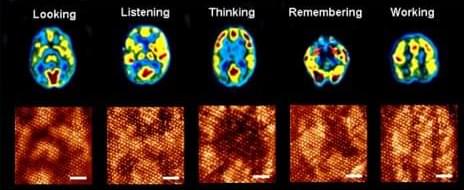Researchers from Japan and the Michigan Technological University have succeeded in building a molecular computer that, more than any previous project of its kind, can replicate the inner mechanisms of the human brain, repairing itself and mimicking the massive parallelism that allows our brains to process information like no silicon-based computer can.
A relatively new technology, molecular electronics is an interdisciplinary pursuit that may very well prove the long-term solution to validate Moore’s law well into the next century. A molecular computer is made of organic molecules instead of silicon. Chips built this way are not only potentially much smaller but also, because of the way they can be networked, able to do things that no other traditional computer, regardless of its speed, can do.
“Modern computers are quite fast, capable of executing trillions of instructions a second, but they can’t match the intelligent performance of our brain,” Michigan Tech physicist Ranjit Pati commented. “Our neurons only fire about a thousand times per second. But I can see you, recognize you, talk with you, and hear someone walking by in the hallway almost instantaneously, a Herculean task for even the fastest computer.”










Leave a reply